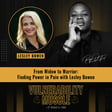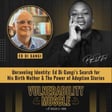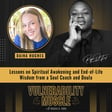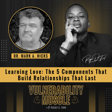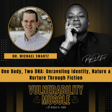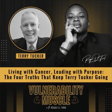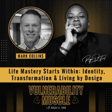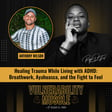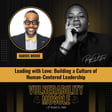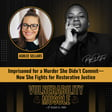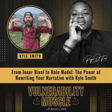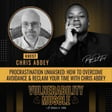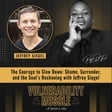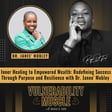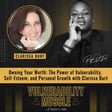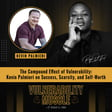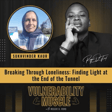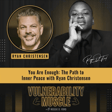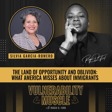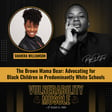
050 - What We Lose When We Forget We're Family with Fatima-Ayan Malika Hirsi
"I don't believe everything is forgivable... but I do believe everything is connected."
In this stirring episode of Vulnerability Muscle, Reggie D. Ford sits down with writer, mother, and poetic truth-teller Fatima-Ayan Malika Hirsi, whose work is rooted in world-building, social change, and collaborative liberation.
Based on the unceded lands of the T’Sou-ke Nation, Fatima is a Black mother and artist whose poetry appears in MAYDAY, Torch, Obsidian: Literature & Arts in the African Diaspora, and beyond. She brings fierce conviction and emotional clarity to topics many avoid—grief, rage, justice, and the sacred role of feeling deeply in a numbed world.
From a dream visitation with her late mother to crying as a sacred act of surrender, Fatima opens her heart and reveals the raw edges of what it means to live fully and love radically. She shares how her upbringing shaped her lifelong commitment to justice, the roots of her poetic activism, and why society's fear of emotion is a systemic tactic of control.
Together, she and Reggie explore:
- Why crying is not weakness, but a portal to healing
- How motherhood deepens empathy and fuels global love
- Why true change demands action beyond art, voting, or performative allyship
Fatima closes the conversation with an unforgettable reading of her poem, This is the Soul of My Soul, a eulogy and indictment born from the crisis in Gaza. Through it all, she invites us to see each other—not as strangers or enemies—but as kin.
🎧 Call to Action:
This episode will stir your soul and ask more of your heart. Listen now—and let it move you into feeling, into action, and into kinship.
📇 Contact Info:
Guest – Fatima-Ayan Malika Hirsi
🌐 Website: fatimaayanmalikahirsi.com
📱 Socials: @fatimawritingdoula
Host – Reggie D. Ford
🌐 Website: reggiedford.com
📱 Socials: @reggiedford on all platforms
📌 Key Quotes / Takeaways for Social Media or YouTube Description:
- "Crying is a portal. I’m not the same person after the tears come."
- "We are kin—not just by blood, but by being alive, by feeling."
- "Art is not enough. If you read my poems and don’t take action, then what’s the point?"
